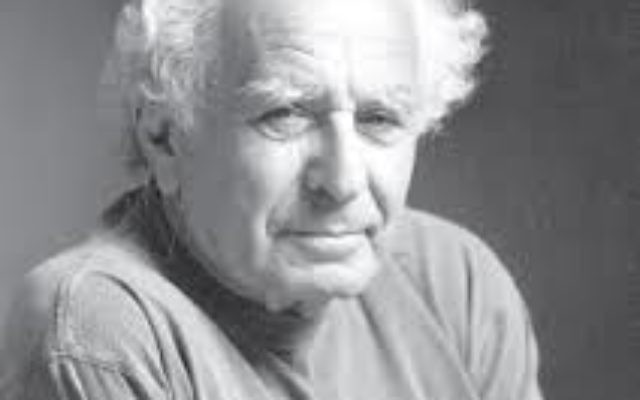Judaism as Only Religion Enables Right Turn
By Eugen Schoenfeld
Was I wrong?
In 1972 I published an article in Religion and Society, a sociological journal on religion, in which I proposed that Jews in the United States, influenced by values rooted in Jewish social history, had instituted a commitment to a liberal economic and political stance. I believed that we Jews had internalized a particular perspective rooted in our interpretation of our national Egyptian memories, extant or not, and further influenced by 2,000 years of life among people who were hostile to us and reinforced by the great conflagration, the Holocaust, as well as half a century of struggle to maintain a sliver of land where we could live and maintain a sense of independence.
Regardless of economic standing, we believed in a universal social perspective that emphasized human rights, a sense of justice and an equitable distribution of “life chances.”
I believed that because of our teachings and the understanding of our historical experiences, Jews, unlike other ethnic and religious groups who immigrated to the United States, would not change their political perspective and become conservative after increasing their wealth.
To a great extent, Jews did maintain their propensity for liberalism. Before World War I, Jews voted for the Republican Party, which at that time was the liberal party, the party of Abraham Lincoln and Theodore Roosevelt.
When the political ideologies changed and as a reaction to the “mad prophet” (Theodore Roosevelt), the Republican Party under William Howard Taft became the advocate of conservatism. Jews switched their allegiance to Woodrow Wilson and the Democratic Party and then embraced Franklin Roosevelt’s New Deal coalition.
Recently, however, Jews’ commitment to liberalism and staunch adherence to the Democratic Party have started to falter. This change became evident in this election, in which wealthy Jews — many in business and especially physicians — not only espoused Republican conservative economic views, but also and more tragically perceived Donald Trump as the savior of America.
What has changed?
We long held the belief that Jewish ideals are important to Jewish survival and well-being. Rashi, the great commentator on the Torah and Talmud in the 11th century, said the Jews enslaved in Egypt merited their liberation because they maintained their religion and, perhaps more important, their civilization — names, customs and lifestyle.
It was in the same sense that Mordecai Kaplan, the Jewish scholar and sage and founder of Reconstructionist Judaism, foresaw that the loss of Judaism as a way of life centered in what he called the Jewish civilization would lead to loss of identity among Jews. He proposed that Judaism could not and should not be viewed merely as a religion.
If we fail to commit to Judaism as a civilization, Jews will soon integrate into the larger culture and join history’s ash heap of disappeared cultures. If we fail to see Judaism’s great depth and moral perspectives and instead define it primarily as a religion, be it Reform or Orthodox, we will hasten its demise.
I also believe in the proposition that the erosion of Judaism as a historically developed culture centers on the overemphasis of religious ritualism and associated overemphasis on the man-G-d relationship, especially when this change is coupled with the diminishing knowledge of history.
Johann Herder, a clergyman and philosopher in the 18th century, said that a people without a common geography, if they wish to maintain their identity and uniqueness, must maintain a common language (such as Yiddish), collective memories (history or Hebrew) and collective aims.
It is this view that led Isaiah Berlin to propose that Jews who were knowledgeable of their history were more successful in maintaining their Jewish identity and values than those to whom Judaism is merely a religion.
While a high percentage of Jews remain committed to social liberalism, there has been a great rise the past two decades of Jews committed to the conservative Republican perspective. I propose that this change derives from synagogues’ rejection of Judaism as a culture and a civilization in favor of its definition as an ancient religion or as one of many American religions.
This is clear in Will Herberg’s treatise “Protestant, Catholic, and Jew.”
To Herberg and many other American Jews, being Jewish in America is being a part of the dominant American way of life, centered on adherence to one of the faiths of the American religious trilogy.
Being an American is tantamount to being a person of faith, whatever that faith may be. Herberg and many of those in the Reform movement sought to interweave the faiths into some sort of notion of a religious mischeling called Judeo-Christianity.
Perhaps, as Isaiah Berlin proposed, German Jewish modernism was an attempt “to escape from the weakness and humiliation of a depressed or wounded social group by identifying oneself with some other movement that is free from the defects of one’s original condition.”
This could be achieved, some thought (or still think), by acquiring “a new set of clothing, a new set of values, habits, new armor which does not press upon the old wounds, on the old scars left by the chains once worn (by us) as slaves.”
The price for being convinced that we belong is too steep. Once, we were the prophet to nations and advocated universal ideals of human inter-responsibility and social justice — the ideals that we Jews have distilled from our experiences in historical tragedies.
Let’s not give up our historical role. Let’s continue to advocate the ideals of the world to come.





comments